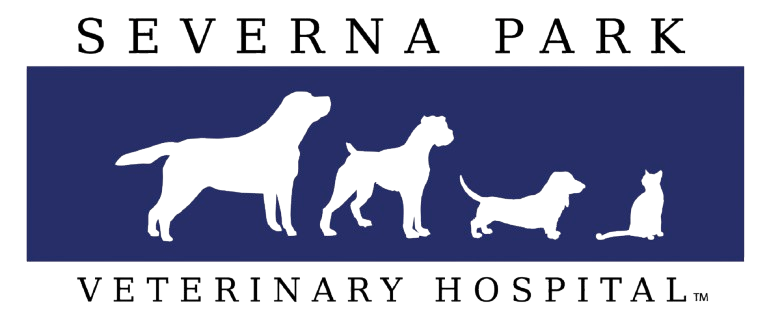Common Household Hazards
There are many common foods, medications, plants, and chemicals found in the average household that are poisonous to our pets. Some of these toxins cause only mild clinical signs, while others can cause severe illness or can even be fatal. This blog will provide you with information on some of the toxicities we see most often as a veterinary practice, but it is far from a complete list. For any suspected pet poisoning, we always recommend contacting one of the animal poison control hotlines (see end of the blog for contact information) and/or your pet’s veterinarian.
Lilies (Cats)- Lilies of the Lilium species “true lily” and Hemerocallis “daylily” family are extremely poisonous to cats. While there are many other plants that go by the name lily, most of those not in the “true lily” or “daylily” family do not cause the same severe toxicity. Some of the common types of lilies poisonous to cats are the Asiatic Lily, Easter Lily, Stargazer lily, and Oriental lily. Whenever in doubt, make sure you sure you check the species of any “lily” prior to bringing it inside. All parts of the lily plant are toxic to cats and even ingestion of a small amount can lead to kidney failure.
Philodendron (Dogs & Cats)- This is a common houseplant that can cause vomiting, burns in the mouth, and drooling if ingested.
Oleander (Dogs & Cats)- Oleander is usually an outdoor plant, but some gardeners will bring it inside for the winter. If ingested it can cause drooling, diarrhea, abnormal heart rhythms, and neurologic signs.
Hyacinths and Tulips (Dogs & Cats)- The bulbs are the most toxic part of both hyacinths and tulips. If ingested, the bulbs can cause burns in the mouth, vomiting, diarrhea, and profuse drooling.
Aloe (Dogs & Cats): While the gel from the aloe plant can have medicinal properties for humans, chewing on the plant can cause vomiting, diarrhea, and drooling in our pets.
Other Common Household Pet Toxicities:
Rat/Mouse Poison (Dogs & Cats)- Traditional rodenticides prevent clotting, and if ingested by our pets, can lead to uncontrolled bleeding. There are a variety of newer rodenticides which can cause a range of signs from vomiting and diarrhea to seizures, swelling of the brain, kidney failure, or death. If your pet ingests any type of mouse or rat bait, it is important to find the active ingredient listed on the box, and to contact animal poison control right away.
Pennies (Dogs & Cats)- American pennies minted after 1982 are made of 97.5% zinc. Ingesting only a few pennies can cause zinc poisoning due to the high concentration. Early signs of zinc poisoning are usually stomach upset and diarrhea. In more severe cases, it can lead to low red blood cells (anemia), damage to the heart and pancreas, or liver and kidney failure.
Cleaning products (Dogs & Cats)- There are many household cleaning products out there, but some of the most common toxic active ingredients are alcohol, bleach, hydrogen peroxide, ammonia, and chemical compounds containing the word “phenol.” Depending on the active ingredient, signs of poisoning can vary between chemical burns, vomiting and diarrhea to disorientation, seizures, or coma.
Insecticides (Dogs & Cats, Cats more commonly)- One of the most common poisonings we see as a veterinary practice is due to pyrethrin, an ingredient used in many household insect/pest controls, topical flea/tick preventatives, and over the counter flea/tick shampoos. While this chemical can be used safely in dogs at the correct doses, it is possible to overdose a pet if given the wrong size of flea/tick prevention. We also see this toxicity when dog flea/tick products are accidentally administered to cats, who are extremely sensitive to this chemical. Signs of poisoning may include vomiting, agitation, incoordination, or in more severe cases, muscle tremors or seizures.
Antifreeze (Dogs & Cats)- Most automotive antifreeze products contain a chemical called ethylene glycol which is poisonous to our pets. Because this chemical has a sweet taste, pets are often willing to drink it voluntarily if left out, spilled, or leaked in driveways or garage floors. Antifreeze poisoning can cause incoordination, disorientation, vomiting, seizures, kidney failure, or death.
Prevention and Emergency Contacts:
As pet owners, we all do our best to protect the animals we love from harm. We recommend “pet proofing” your house to minimize the risk of exposure to some of these common household poisons. However, even in best homes with the most proactive owners, accidents sometimes happen! In the case of a pet poisoning emergency, the following animal poison helpline numbers are recommended:
Pet Poison Helpline, 855-764-7661, http://www.petpoisonhelpline.com
ASPCA Animal Poison Control Center, 888-426-4435, www.aspca.org/pet-care/animal-poison-control
Both hotlines are teamed by pet poisoning specialists who will make specific recommendations based on your pet’s poisoning emergency. If veterinary attention is recommended, please contact our office or your pet’s regular veterinarian immediately. If after hours, contact a local 24-hour emergency hospital such as AAVEC (410-224-0331) or Dogs & Cats Emergency and Specialty (301-809-8800).

